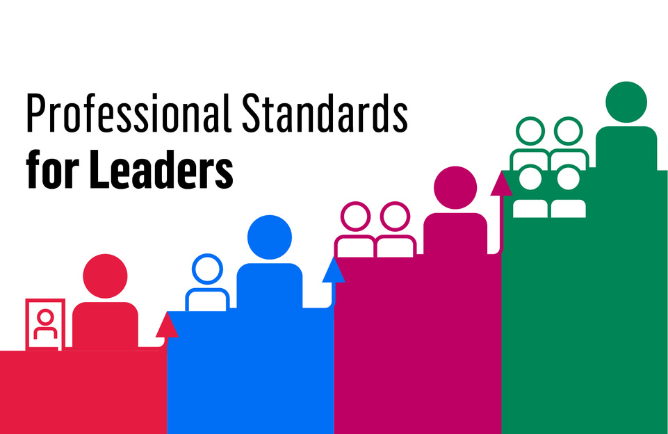ETF launches new Professional Standards for Leaders in the FE and Training sector

The Education and Training Foundation (ETF) has launched new Professional Standards for Leaders in the FE and Training sector.
There are four sets of standards, aimed at individuals at different stages of their leadership journey. Each sets out the professional values and attributes, knowledge and understanding, and skills, required in these roles:
• Aspiring leaders
• Middle leaders
• Senior leaders
• CEOs/Principals
They are intended for use in self-assessment, CPD planning, career development and recruitment, and are designed to nurture the pipeline of leadership talent in FE and Training. They are accompanied by a training needs analysis tool, which allows individuals to reflect on their current skills and knowledge and informs future development and training.
The standards have been created and developed in consultation with the sector. That work has included collaboration with a group of leading CEOs/Principals examining the development of leadership capability in the face of the challenges the sector has faced, and trials with participants on existing ETF programmes. They are available on the Professional Standards for Leaders page of the ETF website.
Their structure mirrors that of the standards for teachers and trainers, an updated and revised version of which were launched by the ETF earlier this year. The intention is that this will make them easier to understand and use for teachers and trainers aspiring to progress into leadership.
The ETF is now working with a group of early adopter colleges on embedding the standards to help develop those institutions’ leadership and management teams.
Jenny Jarvis, Interim CEO of the Education and Training Foundation, said:
“We know from the consultation work we have undertaken with the sector that these new Professional Standards for Leaders will provide valuable and much-needed support to managers at different stages of their careers and levels of seniority.
“They are intended to be used in a positive, supportive way, providing an aspirational, values-led model for what excellence in leadership looks like and as an aid to individuals’ personal development. Importantly, they are not intended to be prescriptive. Every organisation has its own unique features, culture and behaviours, and will want to use them in a nuanced, appropriate way.
“In supporting colleagues in management roles, they will also benefit their institutions and learners. The standards will also help develop the leadership talent pipeline across FE and Training, building its capacity.
“The Standards are both by, and for, the sector – reflecting the enormous value the ETF sees in working collaboratively with partners across FE and Training – and I would like to thank the members of the working group that helped develop them.”
The new Professional Standards for Leaders are part of the ETF’s wider work developing high-quality support and resources for leadership and governance across FE and Training.











Responses